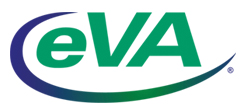By Hank Wieland
1. Establish a realistic timeline that allows adequate planning, marketing, operational preparations, production, budgeting/pricing, target audience identification and program content development, as well as initial survey work and other marketplace research to evaluate interest and need.
2. Pick the right venue, geographic locale and time of year to appeal to the target audience in terms of convenience, amenities, functional facilities and prices, as well as to avoid competing events. Tour the property with a meeting planner before contracting for the space and services.
3. Select a timely, marketable, appealing focus and theme for the event, as well as the best format such as workshop, conference, roundtable or seminar, with or without exhibits, keynotes, panel discussions and breakout sessions.
4. Confirm keynoters in time to announce them as a special attraction in the earliest promotion, and book some well-known, anchor exhibitors in time to promote their participation if an exhibition will be part of the event. Then, start registration early to give more time to market the event, and offer incentives for early commitments.
5. Regarding budgeting/pricing, create realistic financials and stick to them. Keep pricing fair, competitive and based on marketplace research. Do not pick the registration fee structure “out of the air” – set numbers based on costs, program content value and to drive registration for the event. And don’t forget to consider potential revenue from sponsorships, advertising, and exhibit space sales if a trade show element or table-top display will be part of the event. Project a breakeven point and other financial benchmarks.
6. Develop mailing lists, news media databases, name, logo or other design elements/style for the program’s family of materials.
7. Create a strong website with online registration for hotel and event, and include other details such as program schedule, key deadlines, frequently asked questions and answers, attendee and exhibitor information. Also, use social media to promote the event before, during and after it takes place.
8. Use a savvy event planner for negotiations with prospective host properties as well as to help produce the event…every element from menu selections and decorations to meeting room setup, registration and housing. Have all contracts and other legal documents reviewed by an attorney and have insurance policies updated.
9. Use a program committee and other subject matter experts to develop the session content and identify potential speakers/panelists. Make every effort to attract diverse speakers and registrants to enable a variety of opinions and experiences that will help increase the networking value for all participants.
10. Set a realistic date to cancel if initial response to marketing is inadequate – or step up promotional efforts to help overcome slow registration results or soft exhibit/sponsorship sales.
11. Draft survey questions to distribute to all attendees immediately after the event, to evaluate content, operations, overall value, and intent to register for follow-up programs if any are planned. Also, use a focus group after the event to critique it, and use another focus group as part of the initial market research effort prior to announcing the event.
12. If the event is to be held in a subsequent year, plan to have a location and date to announce at the current event. Also, if an exhibition is involved, set up a rebooking process to assign booth space for the next event during the latter part of the current one.
13. Send a thank you letter or email to all attendees, speakers, sponsors, exhibitors and committee members who participated…and invite their feedback.





